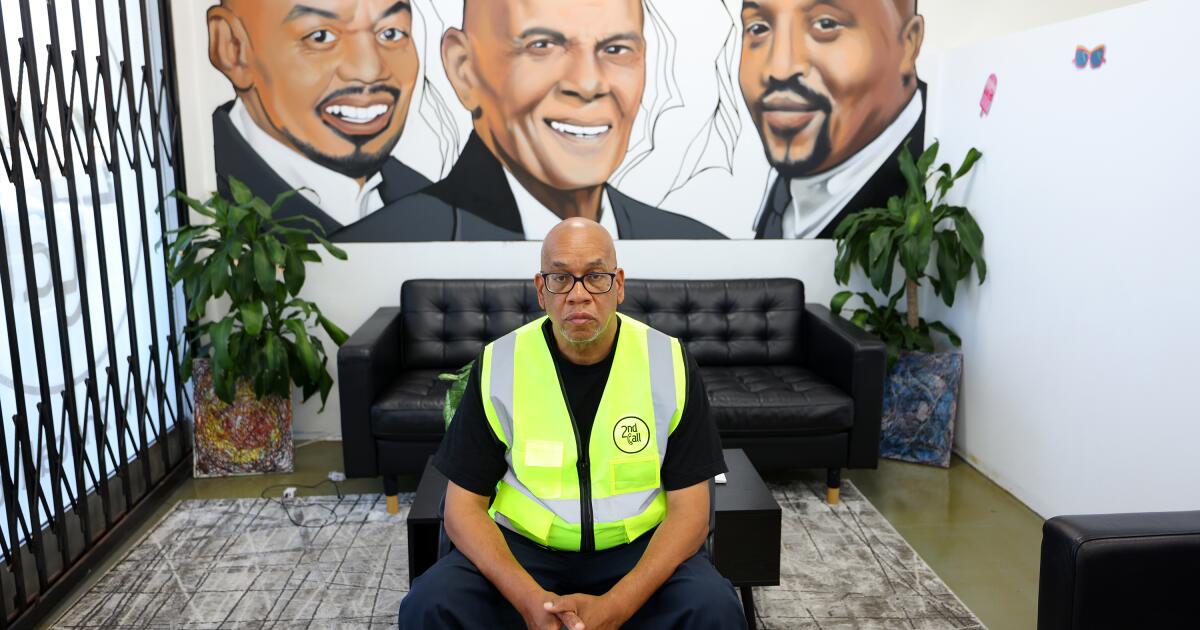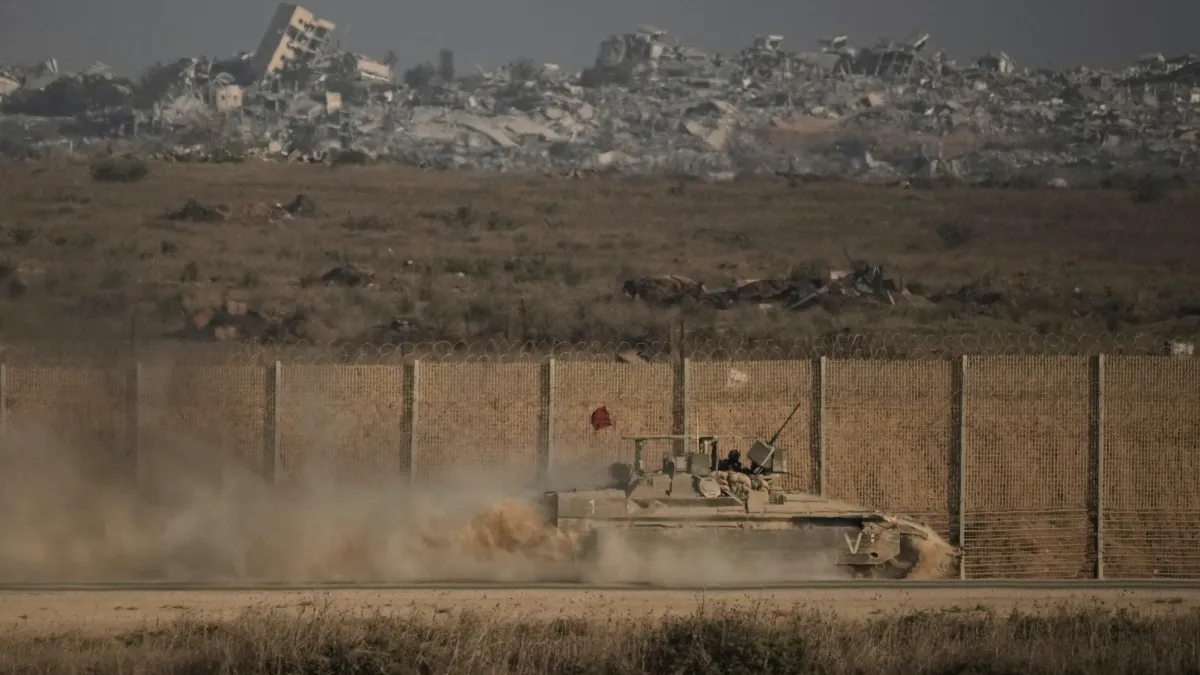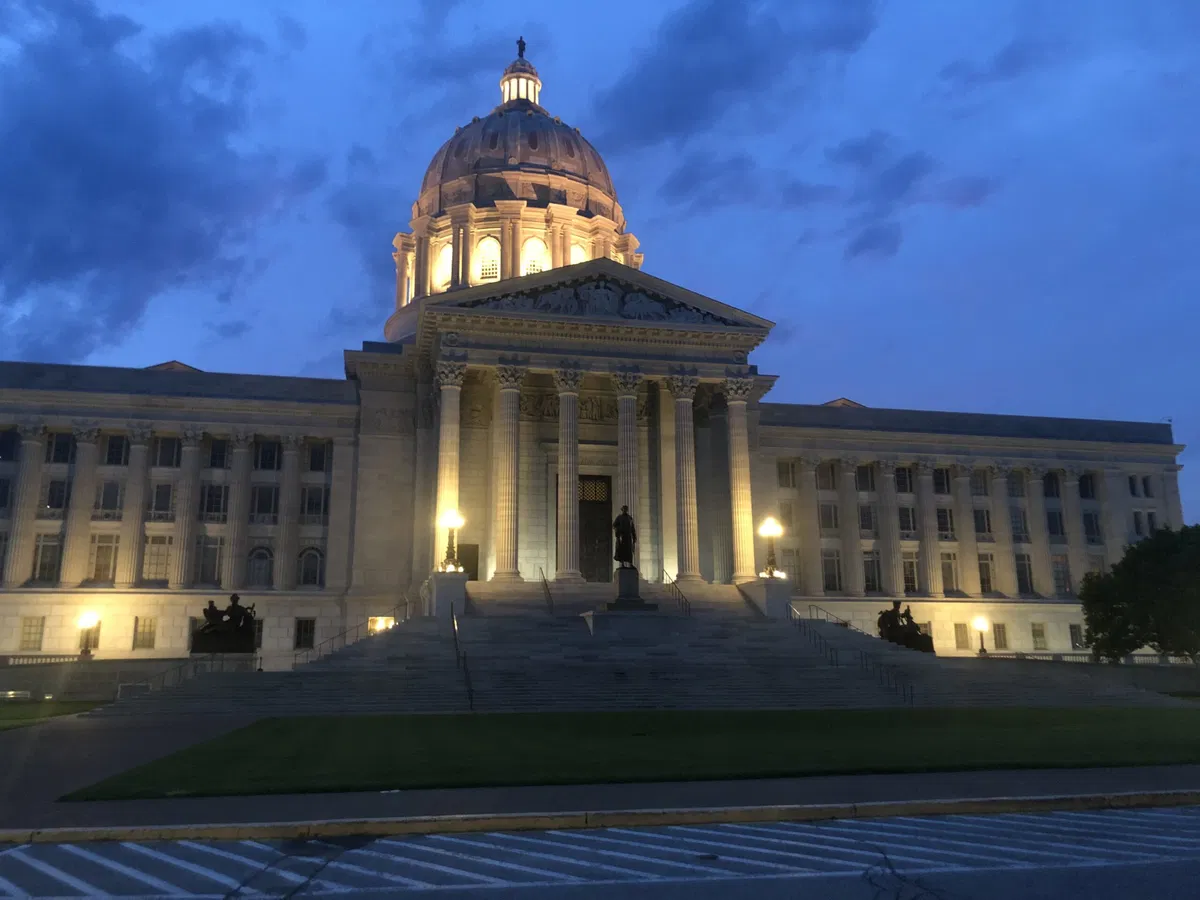
A group of men was hanging around outside a liquor store in the strip mall on Manchester Avenue and Figueroa Street in South Los Angeles when they spotted a woman walk past.
As two of the men moved toward her, two others appeared in the parking lot. Surveillance video from the incident last month — since widely shared online — captured what happened next: A hail of bullets. People scrambling for cover. A body sprawled on the pavement.
The video was replayed over and over on YouTube after it was posted by an account called Hood War Stories. Operated anonymously, the account is one of several with large followings that are dedicated to chronicling gang culture across Los Angeles, offering a combustible mix of news and wild speculation.
While drawing fans by providing an insider’s view of a shadowy world, the content fans flames of simmering beefs, increasing the potential for retaliation, critics say.
Hood War Stories identified the man gunned down in the strip mall shooting last month by the nickname “Chipmunk,” and called the killing “a tipping point that set the streets on fire.” Four others were wounded, with city officials saying victims were between the ages of 19 and 45.
The shooting brought out the city’s mayor and police chief, who, while standing before a bank of TV cameras, condemned the senseless taking of life.
But the specifics of who was responsible for the shooting and why it happened were left unsaid, with authorities remaining tight-lipped in the weeks since.
In the absence of official information, the bustling corner of the internet devoted to L.A. gangs has offered up theories.
Many said the shooting was the latest flare-up in a long, bloody struggle between different sets of the Hoover and Main Street Crips.
Hood War Stories reported that the Main Street Crips were “seemingly taking credit for” the violence, which followed a provocative broadcast live on social media.
According to the podcast, several Main Street members had filmed themselves on social media walking through their rivals’ territory, a common tactic among younger gang members trying to demonstrate their fearlessness and goad rivals into a confrontation.
When clips from the livestreams surfaced on Hood War Stories and elsewhere, word quickly spread on the street that the decades-old conflict was heating back up.
The strip mall shooting on Aug. 26 marked the beginning of a tit-for-tat spree of shootings.
Hours later that same night in the 600 block of 80th Street — another block claimed by a Hoovers set — three people were struck, one fatally, by a hail of gunfire.
Television news picked up on the story as well, running an interview that reverberated on social media. A relative of a woman who was killed said she had left behind eight children and 10 grandchildren.
Later that night in a parking lot near Century Boulevard and Main Street — a reputed Main Street hangout — a 25-year-old Long Beach man was killed and a 51-year-old man was wounded.
The spasm of violence saw 14 shootings across the city over a 48-hour span, though authorities cautioned that not all of them were related to the Hoover-Main Street dispute.
So far this year, Los Angeles has been safer than at any point in recent history. Statistics from the LAPD show the city is on pace for 50-year lows in homicides and other types of violent crimes. Shootings are down nearly 8% from this time last year, LAPD Chief Jim McDonnell said during his regular crime briefing on Tuesday, and violence continues to plummet from the peak of the gang wars that occurred in the early 1990s.
McDonnell did note a spike in slayings citywide in recent weeks, and authorities have said they are braced for more due to festering gang disputes.
Deputy Chief Alan Hamilton said in an interview the LAPD has been pursuing the gunmen from recent incidents, while also working with gang interventionists to try to ward off further retaliations. “But it’s a challenging environment for them as well,” he said.
Hamilton said the LAPD has been collaborating with the federal agencies, including the Drug Enforcement Administration and investigators from the Bureau of Alcohol, Tobacco, Firearms and Explosives to build cases.
Podcast episodes have been cited by authorities in recent high-profile prosecutions, including the racketeering case against rapper Young Thug in Atlanta. In L.A., a federal indictment against a crime ring allegedly fronted by Eugene “Big U” Henley, a reputed Crips leader and music mogul, mentions comments they allegedly made on podcast appearances. Accused of murder, kidnapping, robbery, extortion and fraud, Henley has pleaded not guilty.
Whether the digital subculture devoted to L.A. gang life is working to reduce violence or fueling it is a matter of debate.
The recent explosion of content grew out of a decades-long popular fascination with L.A. gang culture, reflected in movies such as “South Central” and “Blood In, Blood Out.” Gangsta rap shot into the mainstream by glamorizing inner city violence while also shedding light on sanctioned police violence, unemployment, failing schools and racial tensions in Black and brown neighborhoods.
Today in Hollywood, tourists board a bus that promises to take them on a “hood” sightseeing tour.
Jumping into the fold are content creators who have started podcasts, YouTube channels and social media accounts that post about shootings or court cases and spill the latest street rumors. Some channels, such as No Jumper, have gained national reach, drawing shout-outs from prominent rappers and celebrities.
A few creators have carved out a niche interviewing “OGs” — original gangsters — who often reminisce over bygone eras.
Although some interview subjects try to impart hard-won wisdom to younger listeners, imploring them to avoid a path that usually leads to death or prison, just as often the conversations end up with old-timers bickering about the past. Posting police reports or court documents (“paperwork”) of alleged law enforcement cooperators is a common theme.
Like other content creators, some podcasters have found a niche filming themselves reacting to news clips about recent events, speculating about the motives behind shootings and often using crude language to describe the victims. Some face backlash for publicly airing gang business.
On one recent episode of his show, podcaster Young Ant Jefe said he wouldn’t name the people involved in the recent Hoover-related shootings to avoid feeding into the “conspiracy theories.”
“We don’t know what happened,” he said in a widely viewed video. “Unless you was one of the gunmen, the people pulling the trigger, or unless you were one of the people who got shot.”
The demand for street politics-influenced podcasts shows they fill a need by reporting on the incidents that go uncovered by more traditional media outlets, according to Alex Alonso, a longtime Los Angeles gang researcher who has taught in the Cal State University system.
The shows are also creating an oral history of local gang culture and its influence on the city, Alonso said, but they can blur the lines between documenting and fomenting violence. Too often, he said, podcasters who aren’t steeped in the complex street politics of L.A. offer a platform for gang members to take potshots at rivals or make sensational claims that turn out to be false.
“It’s been like a soap opera,” Alonso said. “Gangs have always had these internal beefs. But this is a beef that’s new in a sense that’s internet-related.”
One incident that became a source of controversy online recently occurred at a so-called “Hood Day” celebration for a faction of the Hoovers gang in the 1100 block of 14th Place.
A shooting occurred, claiming the life of Africa Johnson, 52, a woman who was known for carrying respect among two rival gangs, the Hoovers and the Rollin’ 90s Crips.
Johnson was described in the aftermath of the shooting as an innocent bystander who was struck as she ran to her car for cover when the gunfire started.
“She was loved by so many, loved and respected,” said Skipp Townsend, a renowned gang interventionist. “Not too many people can be on Western [Avenue] every day and then go to Hoover Street on the same day.”
Townsend said he found himself doing his best to tamp down street gossip in the wake of the shooting, including speculation over whether the attack was orchestrated by a rival gang or the result of an internal Hoover conflict.
He and others lamented “clout chasers” and “culture vultures” who exploit other people’s trauma to try to gain larger and larger audiences.
Munchie B, who joined the Inglewood Family Bloods at an early age and had emerged as a leading voice in the rap podcast world, said shows that revel in street violence are “counterproductive.”
“It’s a lot of them that are just clout chasers and want to get attention for the shock value,” he said.
Townsend agreed, saying he tries to work the phones after a shooting to get to the bottom of what happened. He then sets the record straight on his YouTube channel — although he acknowledged that doesn’t necessarily stop the online gossip.
“I think rumors right now are probably the worst thing that we have in the city,” he said.



